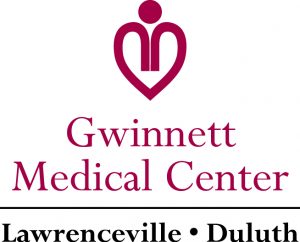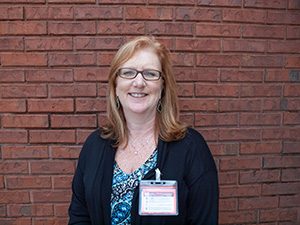 If there’s one thing that continually impresses me about nurses, it’s their ability to see through the noise and just get the job done. Like the nurse present for the labor of my third child who saw that—quite suddenly—the baby was there but the doctor was not. Just like that, no fuss, she prepared to deliver the baby herself. (Side note: the doctor came just in time, but I knew it was the nurse who had my back.)
If there’s one thing that continually impresses me about nurses, it’s their ability to see through the noise and just get the job done. Like the nurse present for the labor of my third child who saw that—quite suddenly—the baby was there but the doctor was not. Just like that, no fuss, she prepared to deliver the baby herself. (Side note: the doctor came just in time, but I knew it was the nurse who had my back.)
Beth Grimes of Gwinnett Medical Center (GMC) is one of those nurses with the uncanny ability to cut through all the clutter to get to the optimal end result. Beth is director of enterprise analytics at GMC, but she has a long career as a registered nurse. It’s clear that her clinical experience has translated into analytics, and she is a great guide for her team on how to ask the right questions and get the information they need to make decisions without overly concerning themselves with minutiae. I recently visited Beth and several members of her team at GMC in metro Atlanta. Here are some highlights from my visit.
Data-driven culture

Beth Grimes, director of enterprise analytics
I’ve visited several organizations recently that I would characterize as having “data-driven cultures.” GMC is one of them. So what distinguishes these institutions? Unfortunately, as I’ve found, there’s not one thing I can pinpoint to say, “Aha! Here is what makes a data-driven company.” But there are a few secrets I found in the GMC walls.
- Trusted data. GMC has recently implemented Dimensional Insight’s Measure Factory, which provides a set of pre-defined business rules and ensures that all users are looking at the same data in the same way. This level of trust is paramount for the hospital. GMC’s ultimate goal is to make sure all of its data is being brought into one point. Beth says, “We have the hospital operations in Dimensional Insight, and we have the surgery in there. Another goal is to add our ED data into it, to try to get all the operational data in one place where management can go in and look at it to get answers.”
- Asking the right questions. Beth works with her users to make sure they are asking the questions that will get them the answers they need. This is a skill she learned in her nursing career, in which the right questions are necessary for the right patient care. She says, “Part of it is teaching them how to ask the questions a little bit differently. They need to formulate the questions they want to ask, see how they can manipulate the data, and then maybe ask the question a different way if they’re not quite getting to what they want.”
- Self-service analytics. Beth’s ultimate goal is to have widespread use throughout the organization. But GMC understands this is a journey. The hospital is on its way there with its base of trusted data and user community that continually feels more empowered to ask questions.
Embracing change
Beth comes from the nursing world, and she brings a lot of her practical know-how to her analytics role in the hospital. Beth says, “From my clinical world I have this mantra of a) don’t double document it, and b) why are we spending all this time if we’re not using it?”
What this means for Beth’s staff is that they are changing the way they work, not just to gain new insights, but also to streamline inefficient processes. For example, Lori Davis, an admin in the surgical services department says, “When I first started working with Beth, I had a 24-page monthly report. She said, ‘Lori, who’s looking at this?’ And I said, ‘I don’t know, I’m just doing it because the person before me did it.’ She said let’s throw these out and see if anybody says anything. Nobody said a thing. Beth looks at things in a practical way.”
Beth’s vision is that data consumers within the hospital eventually will not print out anything—but that they will be so fluent with the data that they will be able to pull up Diver in meetings and work with it in real time. That’s a culture shift within the hospital, but it’s one her staff is starting to embrace.
Focus on the staff

Greg Giddens, director of surgical services
There are lots of research and articles out there about the importance of putting employees first. That’s something that GMC believes in as well. Of course, patient care is paramount, but the organization believes that a focus on happy associates will naturally lead to better patient outcomes and care.
How is GMC working towards this with analytics? Dimensional Insight’s Surgery Advisor application is providing the hospital with the insight to better manage staffing for its surgical suites. Greg Giddens, director of surgical services, explained to me the impact that add-ons have on operations. Add-ons are those surgical procedures—like appendectomies, trauma, serious fractures—that need to be performed within a short window of time. These procedures comprise about 30% of operations, but they can wreak havoc on a surgical schedule if they are not planned for well.
With Surgery Advisor, GMC can get a better handle on add-ons and plan associate time in a more reliable manner. While the hospital can’t perfectly predict the unpredictable, it is finding that the insights through Surgery Advisor are helping to create more reliable schedules so associates aren’t always working 12-hour shifts or being asked to stay much later than they had anticipated. As Beth knows from her clinical experience, a happy associate is more likely to stay with an organization and is more committed to perform at a high level day in and day out. That’s something that all of us as healthcare consumers—whether we are in and out of the hospital with a chronic illness, or are bringing in a sick child for care, or are dealing with an incredibly fast labor—can appreciate.
Travel notes
 GMC has two main facilities – the flagship hospital in Lawrenceville, and a smaller facility in Duluth. I was able to visit both locations during my visit. Each of these facilities has its own little niche in the medical world. The Lawrenceville campus is home to more cardiac and total joint volume (more of what you’d find in a “big” hospital), while the Duluth campus is home to the hospital’s Concussion Institute and has a high volume of sports medicine.
GMC has two main facilities – the flagship hospital in Lawrenceville, and a smaller facility in Duluth. I was able to visit both locations during my visit. Each of these facilities has its own little niche in the medical world. The Lawrenceville campus is home to more cardiac and total joint volume (more of what you’d find in a “big” hospital), while the Duluth campus is home to the hospital’s Concussion Institute and has a high volume of sports medicine.- Atlanta is home to 28 of the world’s Fortune 1000 companies (behind New York City and Houston). While I was there, I visited #64 on the list—the headquarters of Coca-Cola Company. Now, this was a bit of a curious choice for someone who stopped drinking soda about five years ago. But during my trip, I fell off the wagon long enough to sample some Coca-Cola sodas from around the world. (Tops on my list: Melon Frosty Fanta from Thailand and Fanta Kolita from Costa Rica.)
- I was able to get in a quick hike while I was in Georgia at the Vickery Creek Trail in Roswell. The trail runs along ruins of the Roswell Mill, which produced supplies for the Confederates in the Civil War. It was neat to see the ruins of the mill and a lot of the water pipes still intact. The trail also featured a waterfall, which was full of swimmers on a hot summer day!
Read more
If you want to learn more about how Gwinnett Medical Center is using Diver, read the full case study on our website. You can also read more customer spotlights on the blog:
Ready for a test drive of our healthcare analytics software?
- Solving Hospital CEOs’ Pressing Challenges With Analytics - April 15, 2024
- Navigating the Wellness Wave: Wine & Spirits Data Strategy - April 9, 2024
- Takeaways from HIMSS24 - March 26, 2024



